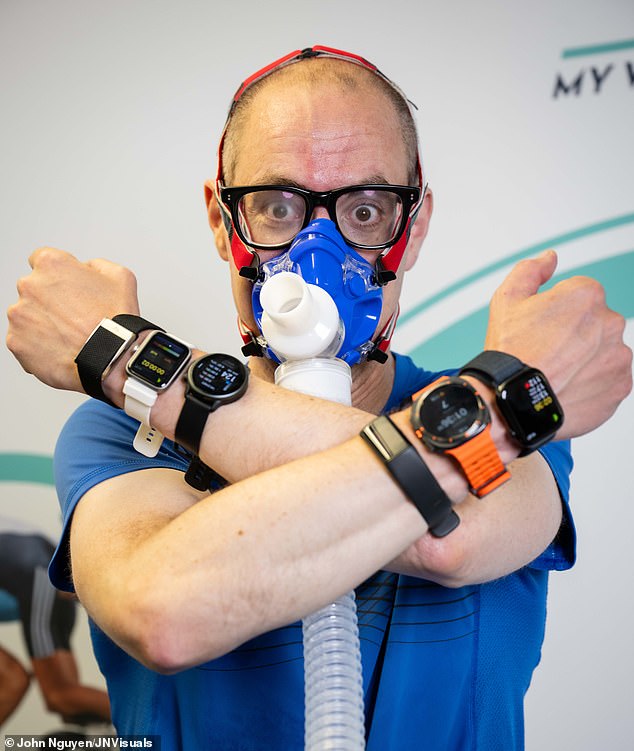
Fitness Watches Exposed: Harry Wallop Reveals Shocking Inaccuracies in Calorie Tracking Tests
Wearables: Can They Really Track Your Health?
Have friends started flaunting chunky rings, wrist straps without watch faces, or obsessing over resting heart rates? They’ve joined the “wearables” trend—devices like smartwatches, rings, and armbands tracking everything from steps to stress levels. Once niche, these gadgets are now hailed as potential lifelines for the overstretched NHS. Health Secretary Wes Streeting recently highlighted plans to integrate wearable data into the NHS app to reduce GP burdens and preempt health declines. But do these devices deliver medical-grade accuracy?
Testing the Tech
Most wearables use sensors like accelerometers for step counts and LED lights to measure heart rate via blood flow. However, calorie tracking—critical amid an obesity crisis—remains a weak spot. To test this, I tried seven devices for a week, then compared results with lab tests at My Vital Metrics, a London facility used by elite athletes.

Harry tests devices for calorie-tracking accuracy.
The Science of Calorie Counting
First, my basal metabolic rate (BMR)—calories burned at rest—was measured via a Dexa scan and oxygen consumption analysis. Wearables estimate BMR using age, height, and weight, relying on outdated formulas.
Next, a VO2 max test on an exercise bike measured oxygen absorption, the gold standard for calorie burn. My wearables’ data was compared against this benchmark. Accuracy scores indicate under/overestimation: 100% = perfect.

Lab tests revealed device discrepancies.
Device Breakdown
-
Decathlon CW500 S (£34.99)
Cheap and Apple Watch-like, this French gadget tracks steps and heart rate but flopped on calories.
Accuracy: 37% -
Samsung Galaxy Watch Ultra (£349)
Rugged and feature-rich yet underwhelming for its price.
Accuracy: 78% -
Apple Watch Series 10 (£399)
The decade-old pioneer excelled in heart rate and came closest on calories.
Accuracy: 92% -
Fitbit Charge 6 (£139.99)
Overestimated steps but underestimated calories—a double whammy.
Accuracy: 72% -
WHOOP 5.0 (£169–£349/year)
Loved by athletes, this screen-free strap offers scores, not raw data. Poor calorie tracking.
Accuracy: 66% -
Oura Ring 4 (£349)
Sleek yet struggled to detect intense exercise.
Accuracy: 86% - Garmin Vivoactive 6 (£279.99)
Overestimated calories, but excels in sports metrics.
Accuracy: 112%

Real-world testing exposed inconsistencies.
The Verdict
While wearables shine in tracking steps, sleep, or heart rate, calorie counting remains flawed. Only Apple neared 90% accuracy. “These devices use algorithms, not measurements,” warns Owen Hutchins of My Vital Metrics. Relying on them for diet decisions could backfire.
For now, wearables are best as motivational tools—not medical devices. Until tech improves, take calorie data with a grain of salt.
(Images: Daily Mail)


